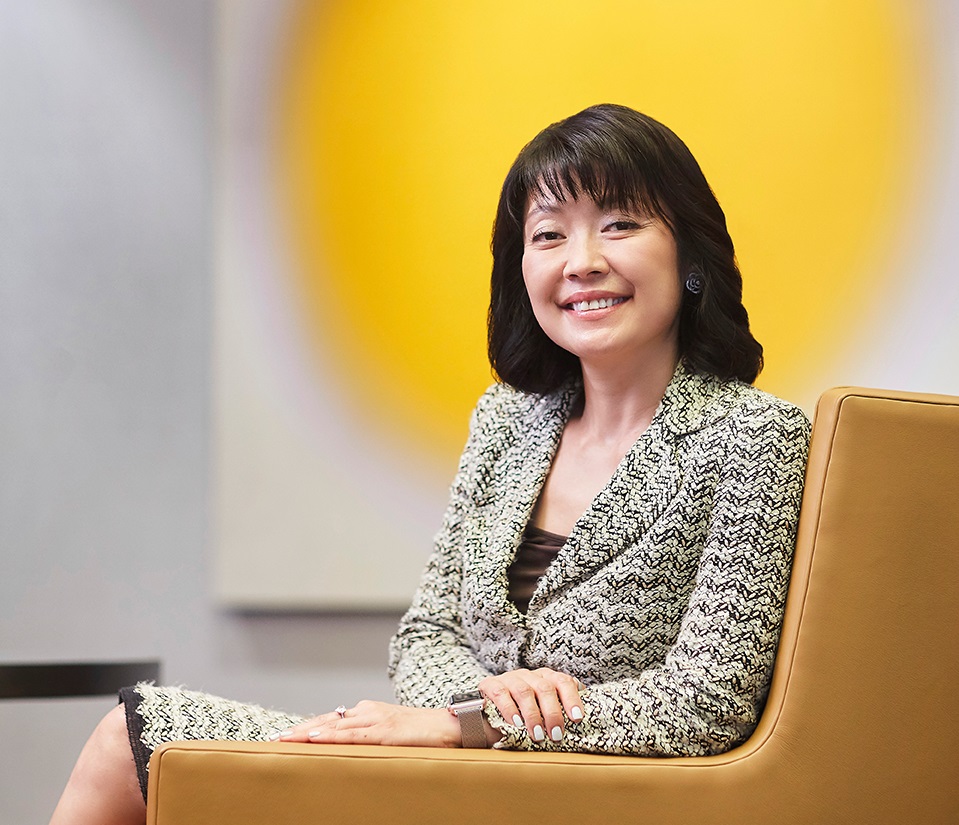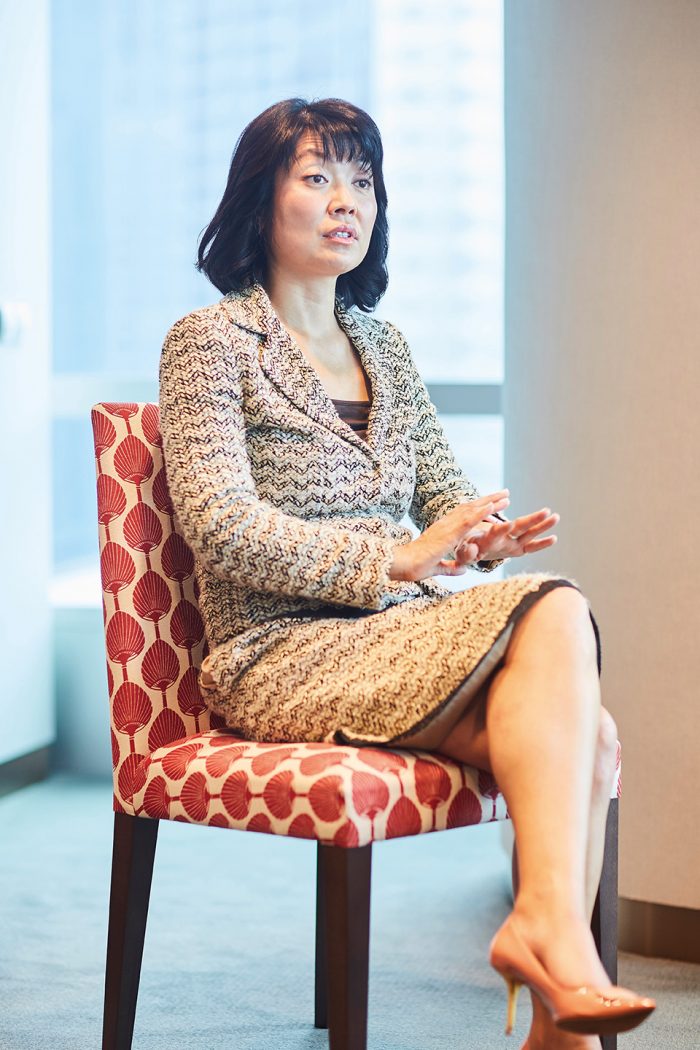One on one with JP Morgan’s Asia CEO
- Kelvin Ong
- Topics: Asia-Pacific, Features, Leadership

Q: What was it like growing up in Hong Kong?
A: I came from a very simple family. I wasn’t privileged, but I wouldn’t say it was harder than most of my peers.
But I was very fortunate in that my father was a forward-looking person. Our family is very traditional, and I think a lot of parents those days would think that the son is supposed to be out there working. For daughters, the most important thing is that she marries well.
But my father never had that mentality. He always felt that boys and girls were the same. It was really no big deal so he always encouraged us to work hard in school and always believed in me and my siblings.
Q: At the age of 13, you moved to Singapore to study. Did your parents push you into that opportunity, or was it self-motivation?
A: In those days, my parents were busy making a living, so we were left on our own a lot. They never gave me any pressure to do things the way they saw fit. If anything, it was all me. But when I got the scholarship, my parents were very proud.
Q: You went on to study accountancy at the National University of Singapore. How did you ultimately end up in asset and wealth management?
A: I never really set out with a specific goal. I never said in 10 years, I need to achieve this. What I wanted was a profession where I could make a decent living. Somehow along the way, I went from auditing to investments because I thought the investment world was exciting and I felt that I could use some of the skills and the discipline that I already had.
I simply wanted a profession that I could excel in.
Q: Since then, you’ve led many business units. What were some challenges you faced throughout your career?
A: There’s no doubt as a mother and a wife, we all want to do every job well. I want to do well in the office, I want to do well as a mother, and I also want to be a decent wife. I think as women, we tend to expect ourselves to do well in all the three areas.
That’s not easy, and I’m not going to pretend that it is. But I’ve always felt that I’m gritty and I should be able to cope with all three, as long as I figure out a way. I don’t have to be a perfect 10 all the time. So if I manage a seven or an eight out of 10, and I’ve managed to achieve all three, then I’ll be better off.
That’s the mentality. You need to give out certain things in order to do more things. Where I can delegate, I do.
Up close and personal
My biggest inspiration:
My daughters. They make me a better person. Because of them, I’ve learned how to deal with difficult situations. They often put me in positions that I don’t always feel in control of
Advice for my younger self:
Don’t rush through things. When I was younger, I took everything really seriously. It’s not a bad thing, but I deliberated too much on certain decisions.
The best decision I ever made:
Coming to Singapore when I was 13 years’ old. That changed my journey. Being away from home during my teenage years was hard, but it moulded me to become the person I am today.
What gets me up in the morning:
The unknown. In my job, every day is different, and can turn out to be very different from what I envisioned.
Leadership style:
I wouldn’t call myself “hands on” – I think it depends on the individual. If I feel everything is running smoothly and the person or team is doing fine, then I don’t interfere too much.
In Leaders Talk HR, HRM Magazine Asia sits down with C-suite movers and shakers to talk HR and leadership.







